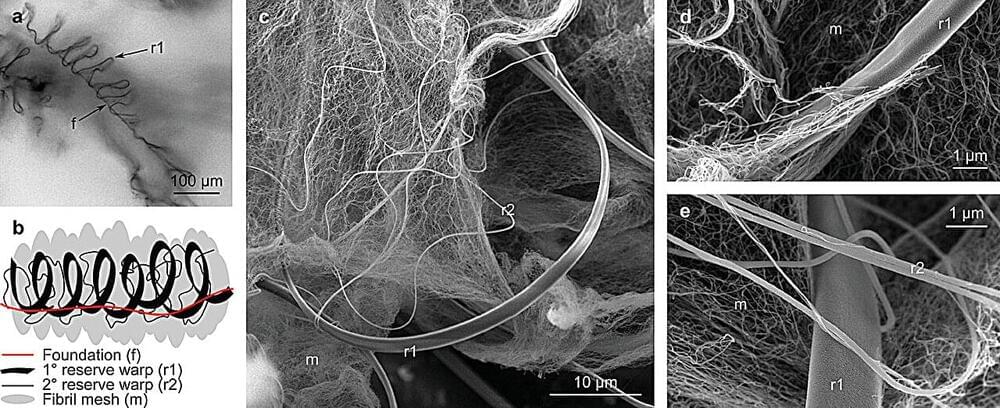Now, will machines catch up?
Computer scientists need to grapple with the possibility they will accidentally create sentient artificial intelligence (AI) — and to plan for those systems’ welfare, a new study argues.
The report published Thursday comes from an unusual quarter: specialists in the frontier field of animal consciousness, several of whom were signatories of the New York Declaration on Animal Consciousness.
Kyocera has unveiled two funds totaling $100 million for startups focused on technologies including artificial intelligence, renewable energy and mobility.
Philosopher Daniel Dennett explains how his functionalist perspective can shed some light on the apparent mystery of conscious experience. Interviewed by Louis Godbout.
(Aria from J.S. Bach’s Goldberg Variations played by Andrew Rangell, Keyboard Masterworks, Steinway \& Sons).
The state could be used for exquisitely sensitive measurements and even to test the Standard Model.
How small is “small?” Spider silk nanofibrils are just a few molecular layers thick, equivalent to approximately one ten-thousandth the diameter of a human hair. They’re invisible to the naked eye and cannot be seen under an ordinary microscope.
1992, 31 October
Posted in chemistry, mathematics, physics
On this day in 1992, the Vatican admitted that Galileo was correct in believing that the earth went around the sun.
2. In the first place, I wish to congratulate the Pontifical Academy of Sciences for having chosen to deal, in its plenary session, with a problem of great importance and great relevance today: the problem of ‘the emergence of complexity in mathematics, physics, chemistry and biology’
The emergence of the subject of complexity probably marks in the history of the natural sciences a stage as important as the stage which bears relation to the name of Galileo, when a univocal model of order seemed to be obvious. Complexity indicates precisely that, in order to account for the rich variety of reality, we must have recourse to a number of different models.
This realisation poses a question which concerns scientists, philosophers and theologians: how are we to reconcile the explanation of the world – beginning with the level of elementary entities and phenomena – with the recognition of the fact that ‘the whole is more than the sum of its parts’?
Effective thermal management is essential to ensuring the performance and lifespan of modern electronics. While polymers are widely used in electronic components, they inherently exhibit poor thermal conductivity, limiting their effectiveness in dissipating heat. To overcome this, researchers have been investigating the potential of integrating highly conductive fillers, such as liquid metals (LM), into polymers.
A new computer vision system inspired by cats’ eyes could enable robots to see the world around them more accurately than ever before.
Robots, drones, self-driving cars and other autonomous systems are becoming more common, but they still struggle to see well in all environments and conditions. For example, self-driving cars perform poorly in rain or fog because these conditions affect the car’s sensors and cameras.
Coverage of the NASA/SpaceX Crew-9 Dragon Relocation from the forward port of the Harmony module at the International Space Station to the zenith port (Hague, Gorbunov, Williams, Wilmore; undocking scheduled at 6:35 a.m. EST, redocking scheduled at 7:18 a.m. EST)









